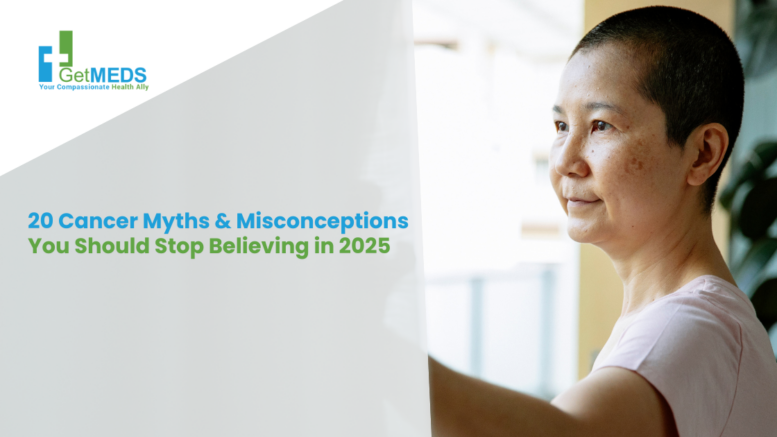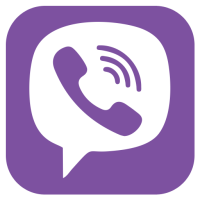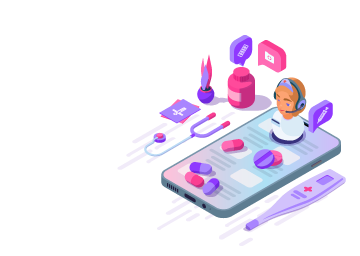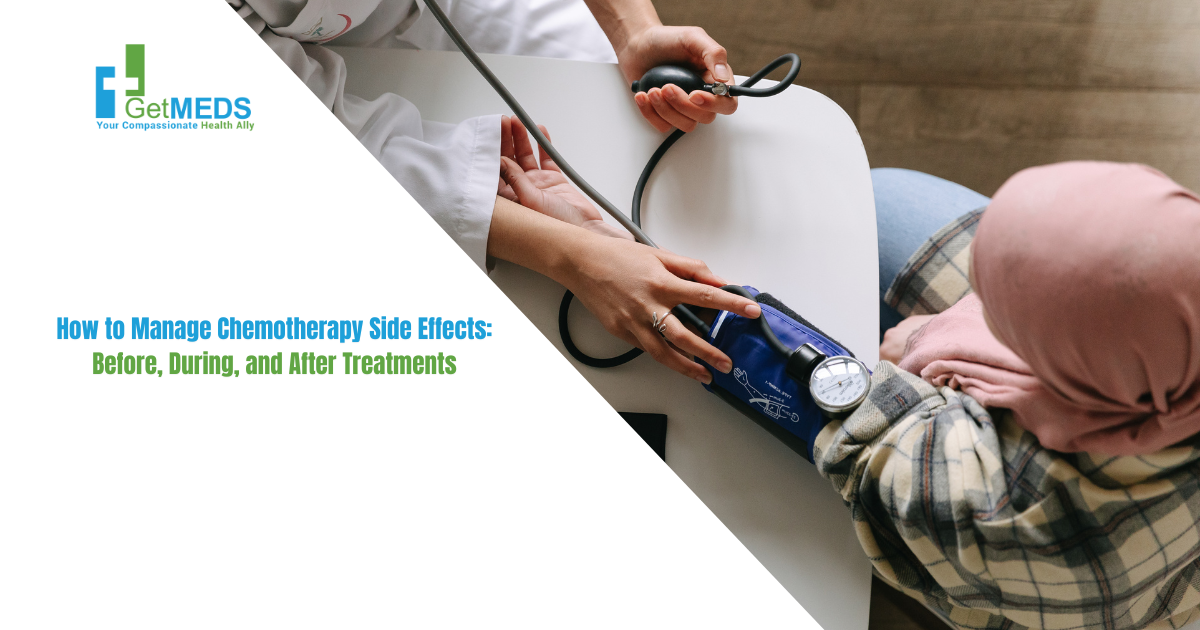Cancer myths and misconceptions is a topic discussion that continues to be passed around without much caution or the need to fact check by the people, prompting misleading content to be disseminated more. Hence, it’s important to seek reliable sources when it comes to healthcare information — such as Getmeds Philippines Inc., an online pharmacy — who continue to support cancer patients and the important role of inclusive information-sharing in public health.
As cancer in the Philippines persists to be among the top of public health concerns nationwide, it’s understandable why many people want to remain cautious and know what they can do to prevent developing the disease.
However, with so much news circulating about what should and what can’t be done in order to take care of your well-being, it can be hard to differentiate facts from fiction, especially with how certain misconceptions of cancer have been around for years and yet keep on causing unnecessary stir within society.
It’s significant to be aware of what the truths are regarding this serious illness as much as it’s important to make a conscious effort of having your health be at its best. This allows you to avoid doing preventive measures that are not needed or restrict yourself from doing something that you ought not to worry about.
Take colorectal cancer for example, the fourth leading cause of cancer-related deaths in the Philippines, diseases like this and people being concerned about it may have the potential of contributing to widespread misinformation about the matter. But regardless how worrisome and anxiety-provoking it may be, let’s do our part of debunking myths related to it among others prevailing cancer types.
Table of Contents
20 Common Cancer Myths Busted – What You Need to Know
To help you differentiate misconceptions and facts from each other, we’ve gathered popular cancer myths that have been widely believed for a long time that you can also read into for your own guidance. These have been compiled with the aim of enlightening those who still believe them and to provide new findings regarding the topic.
These 20 common misconceptions for cancer entail the following:
- Cancer is contagious
- Cancer is a fungus
- Cancer always leads to death
- Getting a biopsy can cause cancer to spread
- Cancer cannot be prevented
- Using cell phones can cause cancer
- X-rays and CT scans can cause cancer
- Herbal products can cure cancer
- Eating sugary food can worsen cancer
- Artificial sweeteners can cause cancer
- Eating food and beverages with soy can cause cancer
- Eating microwaved food in plastic containers and wraps can cause cancer
- Pesticides can cause cancer
- Thinking negatively or positively can affect cancer growth
- Massages can cause cancer
- Using deodorants or antiperspirants can cause breast cancer
- Using hair dye can cause cancer
- Breast cancer can only happen to women
- Having no family member with cancer means you will never have it too
- People with cancer are too ill to work and have jobs
Now, let’s go ahead and explore each one thoroughly.
Myth: Cancer is contagious
No, this disease is not contagious.
You cannot contract it from someone else and you cannot give it to someone else as well. Some inquiries revolve around wondering if this illness can be transmitted through saliva, sexual intercourse, or any type of close proximity with a patient — all of which are already proven to be false as the only way it can be possibly passed from one person to another is through genetics.
Similarly, animals can’t pass it on to humans. They can only pass it within their species through bites or sexual contact.
Myth: Cancer is a fungus
This is false. This serious illness isn’t a fungus nor can it be caused by a fungus.
This myth originated from Dr. Tullio Simoncini, an Italian doctor who said the oncological disease is a fungus and in turn can be treated with sodium bicarbonate intravenously. Considering his theory was unheard of and unique amidst other claims, it garnered attention from the press that led more people hearing about it.
Nonetheless, this theory has been proven to be false, alongside other notions he has brought forward about the serious illness.
Myth: Cancer always leads to death
Despite it being a health condition that can lead to fatal results if not treated early or properly, having this disease doesn’t always lead to death.
Though of course, it still depends on what type of malignancy you have and when you started your treatment upon diagnosis. This highlights the importance of undergoing screenings for early detection, since it can play a huge role in ensuring that your condition becomes better in the long run as early detection equals faster recovery.
Myth: Getting a biopsy can cause cancer to spread
A biopsy is the process of taking tissue samples in a suspicious area and examining it to confirm whether it’s malignant or benign. It’s a diagnostic procedure that can help in confirming a diagnosis and moving forward with one’s medical treatments.
Technically speaking, there is a possibility that a biopsy can cause the disease to spread (due to what is called as “tumor/needle tract seeding”) — this is extremely rare, a detail that people should remember, and that recent studies confirm that no patient got a biopsy and ended up with more abnormal cell growth spreading in their body.
Myth: Cancer cannot be prevented
Yes, it can definitely be prevented.
In fact, there’s a lot of things that you can do in order to lower cancer risk. You can change your diet and choose healthier food options, you can start exercising to be within a healthy weight range, and you can get rid of habits that you know are harmful to your health (smoking and using tobacco products, drinking alcohol, etc.).
Moreover, you may even opt to have yourself screened for the disease, especially if your family history tells you that you have a higher susceptibility of developing it.
All of these can be effective ways of preventing you from contracting the illness or treating it while it’s still easy to handle.
Read also: How to Lower Cancer Risk in Women: 12 Easy Ways to Stay Healthy
Myth: Using cell phones can cause cancer
No, using cell phones does not cause the development of the disease in your body, nor does Wi-Fi or other related things.
This myth about cancer is brought by the fact that cell phones are known to emit radiation (radiofrequency radiation or radio waves) — and malignancy found in the brain and central nervous system are said to be brought by ionizing radiation, a higher level of radiation than radio waves.
To be clear, radio waves do not have the ability to damage DNA as its energy is too low. Although the body can absorb energy from radio waves, the only effect it can give is heat to the area where it’s held (your hands or ear during a phone call).
Aside from that, there’s no proven study wherein cell phones were reported to cause the disease.
Myth: X-rays and CT scans can cause cancer
X-rays and CT scans alongside other medical scanning devices use ionizing radiation, which as established, is the type of radiation that can slightly increase cancer risk. However, despite this, there are not a lot of cases about the disease’s development in one’s body that is linked to ionizing radiation from medical scanning devices.
If there are, it only shows a slight increase, making it not of concerning matter.
Further, people already get exposed to ionizing radiation every day because of radon gas from the ground, with the radiation we get from there on a regular basis even said to be higher in comparison to what we get from x-rays or CT scans.
Given how these medical scanning devices are essential to diagnosing the disease, it cannot be helped that a person needs to subject themselves in undergoing procedures that utilize these machines. It offers more benefits than disadvantages, leading its utilization to be encouraged regardless.
Myth: Herbal products can cure cancer
Herbal products can be made up of a plant’s extract, leaves, flowers, or roots.
There is yet to be significant research that suggests that herbal products can cure the disease. For what’s been observed over the years, it can only serve as alternative or complementary therapies to other health conditions — but for this oncological disorder, it does not have the ability to cure it nor be a replacement to any remedy.
However, it does have the capability to relieve some symptoms and side effects brought by chemotherapy treatments. It’s because of this that this belief is among the common cancer myths and facts that get interchanged often.
Nonetheless, patients are still asked to be cautious about its use since some ingredients found in herbal products may do more harm than good to their well-being, and doctors generally do not recommend its use while the treatments are ongoing.
It’s best to always have a conversation with your oncologist if you want to incorporate herbal products to your recovery journey so they keep a close eye on you for any negative reactions.
Myth: Eating sugary food can worsen cancer
Although many believe that sugary food is an obvious risk factor, it’s been proven that the connection between cancer and sugar is a myth based on various studies.
Instead, it indirectly affects the likelihood of another cancer risk factor which is being overweight or obese.
Weight gain stands behind smoking as a factor that can increase the chances of an individual contracting the disease. That’s why it’s generally encouraged for people to be within a healthy weight range in order to lessen their chances — and that includes having a healthy diet and avoiding eating food that is high in sugar since it contains more calories than other food groups.
Myth: Artificial sweeteners can cause cancer
Much like with sugary foods, artificial sweeteners such as aspartame, saccharin, sorbitol, and xylitol are not a significant risk factor when it comes to the disease.
These additives are found in food and drinks like carbonated and diet beverages, cereal, snack bars, chewing gum, toothpaste, syrups, condiments, sauces, and yogurts that are low-sugar or sugar-free.
Back in 2023, news circulated about aspartame being linked to abnormal cell growth. However, there should actually be no concern regarding this matter as this claim has already been debunked by several international health organizations, stating that there is limited evidence that would suggest that aspartame can potentially cause malignancy.
Myth: Eating food and beverages with soy can cause cancer
No, this is not true. Having the disease because of consuming food and beverages with soy is a cancer myth that people ought to stop believing.
This speculation is rooted from the fact that soy has high amounts of phytoestrogens, a plant equivalent of the human hormone estrogen. And since high levels of estrogen is primarily linked to breast cancer risk, there’s this fear that its continued consumption would lead to higher susceptibility to the said disease.
This is false. In fact, there’s been studies that even say that soy can lessen your risk of contracting it. Considering that it’s made from soybeans that are rich in protein, fiber, omega-3 fatty acids, and low in saturated fat as well as cholesterol-free and lactose-free — it offers a lot of positive health effects that makes it a good addition to your diet.
Myth: Eating microwaved food in plastic containers and wraps can cause cancer
Plastic containers and wraps that have labels on them that say it’s microwavable or okay to be used for heating food in the microwave are definitely safe.
Previous studies have said that it wouldn’t pose any threats to your health and would not put you at risk of developing malignant tumors. Unlike with margarine tubs, takeout containers, and the like, these materials when used in a microwave for heating food could potentially melt and leak chemicals into your meals.
Overall, although plastic packaging can put small amounts of chemicals in your food, these are insignificant and wouldn’t negatively impact your well-being in a serious manner.
Myth: Pesticides can cause cancer
Pesticides, a chemical agent, are often seen in farming and gardening, with people who wish to eliminate pests (weed and insects) from their crops and protect their plants in general making good use of it.
Since certain vegetables and fruits are grown using pesticides, the concern on whether it’d be safe to eat food that would potentially have leftover chemicals on them is frequently pointed out. Especially when it comes to malignant tumors, there’s a fear that you may develop them if you eat food that is contaminated by pesticides.
However, research has already debunked this and claims that even if pesticides are left on vegetables and fruit, these are usually in small amounts that it wouldn’t be considered as harmful.
Myth: Thinking negatively or positively can affect cancer growth
There is no clear indication that having negative or positive thoughts would affect one’s susceptibility or not to the disease.
Many wonder, can unhappiness cause cancer? And while there have been case studies before that show some link between the disease and stress in particular, it’s said to be indirect in a way wherein that stress can lead to the formation of bad habits — which then leads to higher risk.
On the other hand, although there is definitely nothing wrong with wanting to be optimistic throughout your health journey, it can only help in a way that would lessen the chances of mental health disorders like depression, distress, and anxiety from occurring or would help with dealing with the treatments and side effects overall.
But with malignancy specifically, it doesn’t have any significant impact over its growth.
Check this out: Basic Meditation For Stress Management
Myth: Massages can cause cancer
No, massages do not cause cancer nor can spread it to other areas of your body.
The spread of the disease is a complex process that can’t be done with a massage. It involves gene expression, mutation, and biological messengers for it to happen.
Moreover, having a massage while you have the oncological disorder is seen as a complementary therapy that can help a patient feel better as they’re undergoing their treatments. It would relieve some symptoms like nausea, pain, fatigue, anxiety, and depression by one half.
Just make sure that your oncologist deems that your body is fit for receiving a massage if you do wish to have one in the middle of having treatments, and that the massage therapist have received formal training or possesses the awareness and experience to know how to give a massage for a patient who’s been previously diagnosed with the disease.
Myth: Using deodorants or antiperspirants can cause breast cancer
Among popular breast cancer myths, using a deodorant or antiperspirant as a risk factor is one that often circulates and is falsely believed.
Since these products are applied on the underarm, an area that is near the breast, there’s been concern about its aluminum-based compounds penetrating the skin and letting out effects that are similar to estrogen, which is the hormone that plays a significant role in the development of the said malignancy.
Regardless, studies have made it clear that there is no connection between antiperspirants and breast tumors, with no increased risk or susceptibility reported to individuals who use the product.
When discussing cancer facts, female patients (and occasionally, men) with this type of malignancy typically develop it in the breast before it spreads through the lymph nodes, with its growth primarily caused because of damaged cells — not because of aluminium nor parabens, another chemical that is commonly found in personal care products and which have already been said to have no direct link to the condition as well.
Myth: Using hair dye can cause cancer
As hair dye contains a lot of chemicals, namely ammonia, aromatic amines, and hydrogen peroxide among several others, all of which can be absorbed into the skin of your scalp in small amounts whenever you use them or when you unconsciously breathe them in, a lot can be apprehensive about using the product.
According to research, the most convincing results that show a link between hair dye and the disease is how hairdressers and barbers have shown higher odds to develop malignancy in their bladder.
But even then, it doesn’t serve as a definite indication that the use of the product can lead to having the disease. There is no sufficient study that entirely supports that people who use hair dye will find themselves having the disease one day.
Myth: Breast cancer can only happen to women
No, this is false. It only continues to be one of the myths about breast cancer that is still widely believed due to how it is a female dominated illness — with statistics showing that 99% percent of people who have the disease are women.
Nonetheless, men can develop abnormal cell growth in the breast just like women can, covering the 0.5 – 1% of the provided data, thus rendering them to be capable of having it, with its occurrence only said to be rare.
Further, if diagnosed, men would be prescribed the same treatments and management guidelines that are assigned to women, showing no difference in how men with malignant tumors in the breast are handled by healthcare professionals.
Since every person is born with a small amount of breast tissue, men can still be at risk of developing the disease, just not as often because of how compared to women, they do not grow more breast tissue after puberty.
You might also like: Do The Self-Breast Exam And Increase Your Odds Of Early Treatment
Myth: Having no family member with cancer means you will never have it too
No, there’s still a chance that an individual can have the disease even if no family member has shown history of having it.
This is because the mentioned health condition isn’t purely developed because of genetics. There are other risk factors that should be kept in mind, such as having bad habits like smoking and drinking alcohol, not eating nutritiously, not having the right vaccines, not having yourself screened, not having any physical activity, and not managing your weight which can lead to obesity.
Having family members who have the disease simply means that an individual is at higher risk, meaning that those who do not have a family medical history of abnormal cell growth may be at lower risk — but not exempted to it.
Myth: People with cancer are too ill to work and have jobs
Patients who are dealing with this serious illness may have more obstacles coming in their way, but this doesn’t render them completely unable to work and maintain a job.
In fact, it’s common for people diagnosed with it to want to work, as the financial burden that comes along with having treatments and other necessary medications creates this need to have a stable source of income, and there are also government laws and policies that enable them to have that.
Nonetheless, it’s always important for the patient to disclose sufficient information about their diagnosis and treatment plants to their boss and the HR department in order for the company to make the necessary adjustments for their illness.
Related: How to Reduce Cost of Cancer Treatment in The Philippines
Final Thoughts
There are a lot of common misconceptions for cancer, mostly driven by fear of the disease, beliefs of people due to their religion or culture, the lack of factual information about the matter, and how circulating theories about it are either blown out of proportion or oversimplified to make sense of how it develops in the body.
This makes it more important for us to seek out insights or news that would give us the truth regarding anything about this particular health condition. Considering that it’s one of the top public health concerns recognized in the Philippines, being enlightened about the common cancer myths and misconceptions that bring baseless concerns can help in reducing anxiety and make way for what we really ought to know in keeping our well-being healthy and risk-free.

 Login/Register
Login/Register











Be the first to comment on "20 Cancer Myths and Misconceptions You Should Stop Believing in 2025"